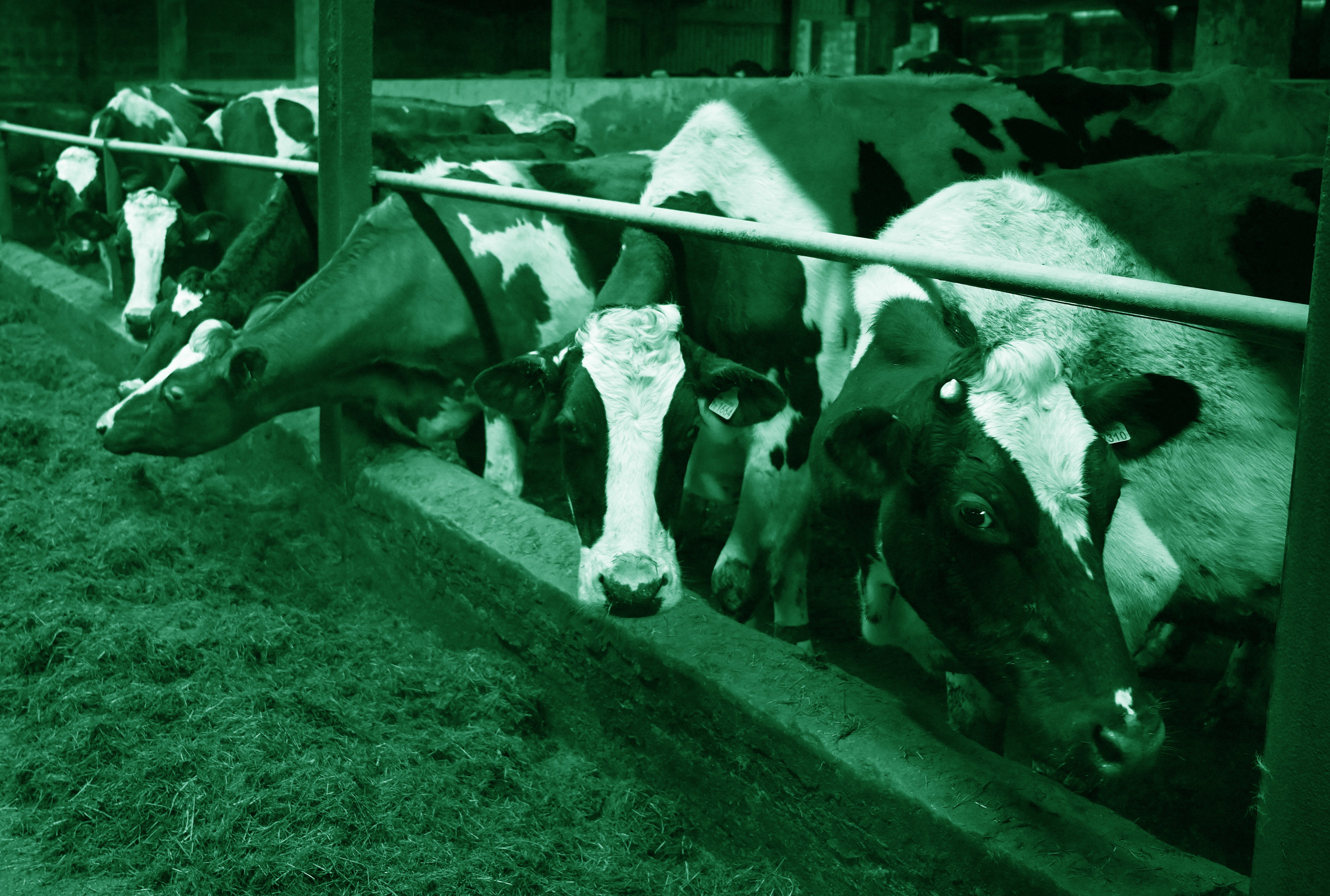Is dairy or meat worse for the environment?

Your support helps us to tell the story
This election is still a dead heat, according to most polls. In a fight with such wafer-thin margins, we need reporters on the ground talking to the people Trump and Harris are courting. Your support allows us to keep sending journalists to the story.
The Independent is trusted by 27 million Americans from across the entire political spectrum every month. Unlike many other quality news outlets, we choose not to lock you out of our reporting and analysis with paywalls. But quality journalism must still be paid for.
Help us keep bring these critical stories to light. Your support makes all the difference.
An analysis by the UN’s Food and Agricultural Organisation found meat and dairy accounts for 14.5 per cent of the world’s greenhouse gas emissions — the same as all cars, HGVs, aircraft, and ships combined.
But vegetarians who eat cheese may be shocked to learn that the cheddar they grill for toasties is more damaging to the environment than a bacon sandwich.
Which is worse, dairy or meat?
Lamb and beef cause the most greenhouse gas emissions by far, according to a life-cycle analysis carried out by the US non-profit Environmental Working Group (EWG),
But cheese ranks third, generating 13.5 kilos (29.7 lbs) of CO2e (carbon dioxide equivalent, a standard unit for measuring carbon footprint) per kilo eaten. It is worse for the environment than the production of pork, salmon, turkey, and chicken.
Why is cheese so carbon-intensive?
There are several reasons for the relatively large carbon footprint of cheese. First, one kilogramme of cheese can require up to 10 litres of milk due to the maturing process.
Another problem is where that milk comes from. Cows and other dairy animals emit huge amounts of methane, which is about 25 times more damaging to the climate than carbon dioxide. Producing animal feed also contributes to global warming, and animal waste can impact water and air quality.
Professor Lorraine Whitmarsh is an environmental psychologist at the University of Bath and a director of the UK Centre for Climate Change and Social Transformations (CAST).
She said: “I think there is an assumption that if you are a vegetarian you are making a massive difference by cutting out the most polluting foods, but cheese and dairy is pretty high impact.
“However, we need to communicate that you don’t need to give up everything. Even reducing dairy intake can help a lot.
“We should also recognise that if you have cut out meat you are doing your bit – we don’t all need to go vegan.”
Prof Whitmarsh also adds buying local cheese and dairy helps to reduce carbon generated by shipping.
“We are looking at ways to support that, such as lower prices for local goods,” she said. “People are more and more addressing where their food comes from and animal welfare, but the climate isn’t particularly up there as a reason for doing so.”
A survey by CAST found 70 per cent of people agree we should definitely/probably reduce meat consumption, but only 54 per cent feel the same about dairy products.
Prof Whitmarsh also said the marketing of the health benefits of dairy, particularly towards children, is a factor in the slower uptake of people replacing dairy.
Dr David Rose, an associate Professor of Agricultural Innovation and Extension at the University of Reading, said there is little education about the carbon costs of dairy among the UK public.
“It’s partially linked to what the press is focussed on,” Dr Rose said. “There is an increasing understanding of the impact of beef and lamb, but rarely is dairy mentioned.”
“If you are concerned about food miles and environmental impact of food produced on the other side of the world you can shop locally.
“It’s important to distinguish UK meat and dairy and non-UK meat and dairy. The environmental impact of grass-fed UK beef is less than beef from overseas.”
Prof Whitmarsh said part of the problem is that there are many alternatives to meat and milk, like oat and soy milk and plant-based burgers, but cheese alternatives are thin on the ground.
Dr Rose’s assessment is blunter: “Alternative cheese tastes rubbish.
“Cheese seems to be the one that people really struggle with. It’s in the hands of scientists to invent and provide a decent alternative.”
What can you do to minimise the environmental impact of your dairy consumption?
Eating mozzarella, feta, brie, cottage, or camembert may help reduce your carbon footprint. These low-fat and softer cheeses are thought to be much less emission-intensive because they have a shorter ageing process. Keeping cheeses at a controlled temperature as they age can use a lot of electricity.
Dr Rose said anyone thinking of cutting down or eliminating dairy from their diet should talk to a doctor or nutritionist.
He said: “There is a strong health case for dairy. We have to be careful telling consumers what to do as there are nutritional benefits to eating meat and milk is an important source of calcium.
“You can replace the calcium and nutrients if you have a good vegan diet, but it is difficult to do.
“Yes, cut down on some meat and dairy, but ensure you know what you are doing. Where else are you getting your B12, iron, zinc, and calcium from? Some vegan alternatives can be fortified with vital nutrients.
“Consumers must be particularly careful with children with growing bones and old people at risk from osteoporosis.”
Join our commenting forum
Join thought-provoking conversations, follow other Independent readers and see their replies
Comments